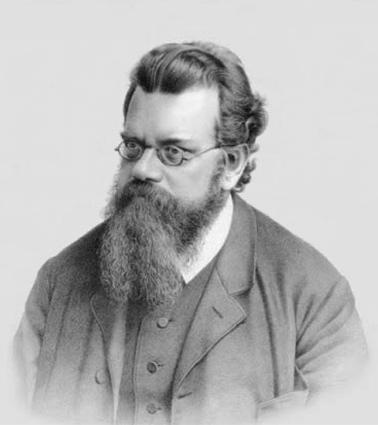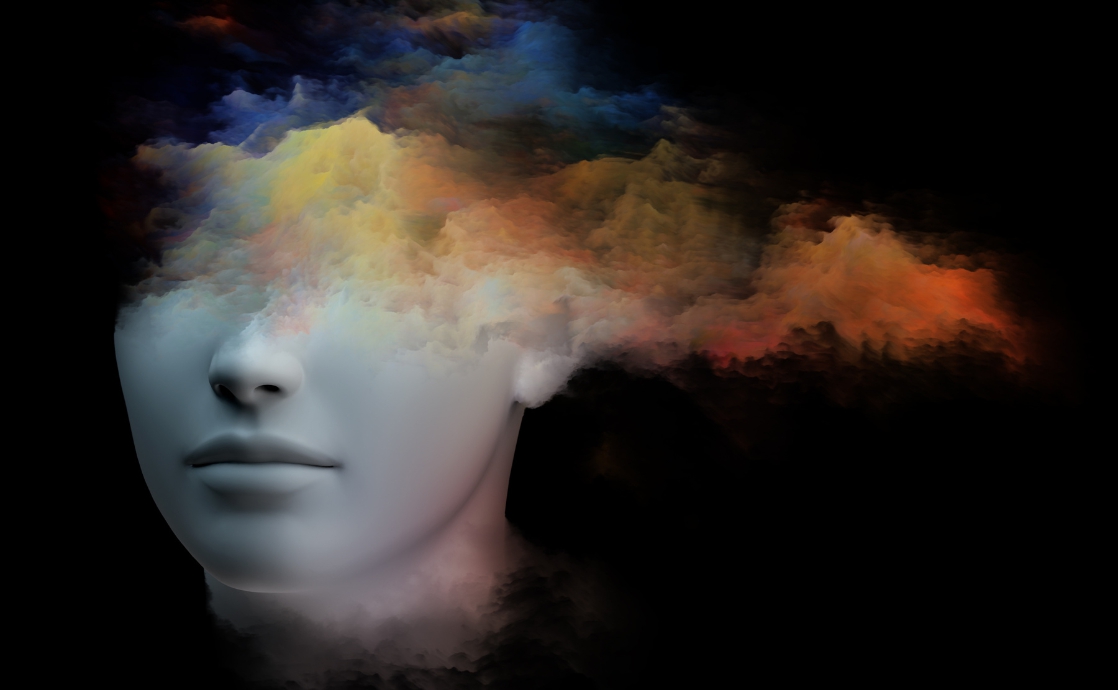The views expressed in our content reflect individual perspectives and do not represent the authoritative views of the Baha'i Faith.
Scientist and philosopher Ludwig Boltzmann developed a philosophy he called Realism – which completely opposed what he understood as the naïve idealism of his day:
The idealist compares the assertion that matter exists just like our sensations to the view of the child that a beaten stone suffers pain. The realist compares the assertion that one can never conceive how mental phenomena can be represented through matter or even through a play of atoms with the opinion of an uneducated person who maintains that the Sun cannot be 20 million miles [German miles] from the Earth, as he cannot imagine it. As ideology [idealism] is only a view for one individual, but not for mankind, to me the terminology of realism appears more useful than that of idealism. If we want to include the animals, nay Universe.
RELATED: The Philosophy of Materialism – A Baha’i Response

Thus, Boltzmann rejected the extreme idealism of the philosophy of the idealist George Berkeley – who, in an attempt to rescue literalist Christianity against the challenges of modern science, held that everything was ultimately a non-physical intellectual experience:
Take away this material substance, about the identity whereof all the dispute is, and mean by body what every plain ordinary person means by that word, to wit, that which is immediately seen and felt, which is only a combination of sensible qualities or ideas: and then their most unanswerable objections come to nothing.
Thus Boltzmann’s insistence on realism mirrors Abdu’l-Baha’s, found throughout the Baha’i teachings and in this excerpt from Some Answered Questions:
The sophists hold that all existence is illusory, indeed, that each and every being is an absolute illusion that has no existence whatsoever — in other words, that the existence of created things is like a mirage, or like the reflection of an image in water or in a mirror, which is merely an appearance devoid of any basis, foundation, or ascertainable reality. This notion is false, for although the existence of things is an illusion compared to the existence of God, yet in the contingent world it is established, proven, and undeniable.
But Boltzmann also presciently recognized that there should be a physical correspondence or expression of thought realizable in matter – ideas which we now take for granted, with our recent understanding of the role that the neurological structure of the brain plays in thought, memories and computational science. This was gravely challenging to idealists and the religious minded, since it suggested that the heretofore unassailable bastion of “mind” and “thought” might not be as transcendent and metaphysical as they believed. That thoughts and memories can be “physical” meant that mind could arise from matter and not as they supposed, matter from mind.
While both Abdu’l-Baha and Boltzmann admitted the existence of a true reality, their discussion of Divinity demonstrates that they both placed limits on what the human mind could perceive and conceive. For Boltzmann, this was the genesis of his concept of Theoretical Pluralism, which appears to have foreshadowed and influenced the development of the philosophical understandings of quantum mechanics. Boltzmann explained:
Hertz makes physicists properly aware of something philosophers had no doubt long since stated, namely that no theory can be objective, actually coinciding with nature, but rather that each theory is only a mental picture of phenomena …. From this it follows that it cannot be our task to find an absolutely correct theory but rather a picture that is as simple as possible and that represents phenomena as accurately as possible. One might even conceive of two quite different theories both equally simple and equally congruent with phenomena, which therefore in spite of their difference are equally correct. The assertion that a given theory is the only correct one can only express our subjective conviction that there could not be another equally simple and fitting image. – Ludwig Boltzmann, On the Development of the Methods of Theoretical Physics in Recent Times, p. 90.
While Abdu’l-Baha in many of his talks affirmed the existence of a universal law, he also appears to have not claimed that our human understanding would ever terminate into a single theory of everything. In a very interesting provisionally-translated passage from his Tablet of the Universe, he made this observation:
For particulars in relation to what is below them are universals, and what are great universals in the sight of those whose eyes are veiled are in fact particulars in relation to the realities and beings which are superior to them. Universal and particular are in reality incidental and relative considerations. The mercy of thy Lord, verily, encompasseth all things!
Know then that the all-embracing framework that governs existence includes within its compass every existent being — particular or universal — whether outwardly or inwardly, secretly or openly. Just as particulars are infinite in number, so also universals, on the material plane, and the great realities of the universe are without number and beyond computation.
What appears new here is the idea that the progression from particular laws to more general laws is an infinite process, and would never terminate into some final “theory of everything” – fully in line with Boltzmann’s suggestion that there can perhaps be no “ultimate theory” of everything. This idea is reinforced by another observation about the progress of science made by Abdu’l-Baha in a speech he gave in New York in 1912:
Mathematicians, astronomers, chemical scientists continually disprove and reject the conclusions of the ancients; nothing is fixed, nothing final; everything is continually changing because human reason is progressing along new roads of investigation and arriving at new conclusions every day. In the future much that is announced and accepted as true now will be rejected and disproved. And so it will continue ad infinitum.
RELATED: The Enlightenment, Materialism, and the Loss of Meaning
The idea of theoretical pluralism no doubt came as a natural development for Boltzmann, given that he was fighting what he viewed as an entrenched dogma of anti-atomism – but his position really represented a rejection of all dogmatism as being antithetical to the whole project of scientific discovery:
Simple consideration as well as experience show that it is hopelessly difficult to find the right pictures of the world by mere guessing into the blue. Rather, the pictures always form slowly from individual lucky ideas by fitting. Rightly epistemology turns against the activities of the many lighthearted producers of hypothesis who hope to find a hypothesis explaining the whole of nature with little effort, as well as against the dogmatic and metaphysical derivation of atomistics.
Abdu’l-Baha likewise condemned the mindless dogma found in religion when he said:
Shall man, gifted with the power of reason, unthinkingly follow and adhere to dogma, creeds and hereditary beliefs which will not bear the analysis of reason in this century of effulgent reality? Unquestionably this will not satisfy men of science, for when they find premise or conclusion contrary to present standards of proof and without real foundation, they reject that which has been formerly accepted as standard and correct and move forward from new foundations.
Boltzmann’s life ultimately ended tragically – he committed suicide in 1906, a victim of mental illness aggravated by the brief resurgence of the anti-atomist ideology at the beginning of the 20th century and his failing health. Yet his ideas on the nature of order, matter and mind have helped shape the course of modern physics and the debates between science and religion. Indeed, the questions concerning the primacy of matter over mind resurfaced with the advent of quantum mechanics and the later development of information theory based on his statistical mechanics.
While it should be obvious that many aspects of mind can be constructed from the interactions of matter, what is necessary in this and all of physics is the centrality of relational information or math. Thus, the same physics or equations can manifest themselves across a variety of physical systems, and it is this math which ultimately underlies the nature of the observed order. Additionally, the quite stunning revelation of quantum mechanics – that the abstract math of a field is all that seems to underlie the appearance matter and energy – leads us to an idealism of a very different sort. It is not one founded upon some ill-defined concept of “mental energy” as the 19th century Energetics thought, but rather returns us to the ancient Pythagorean hypothesis that places mathematics as the primary substance of both mind and matter.
















Comments
Sign in or create an account
Continue with Googleor